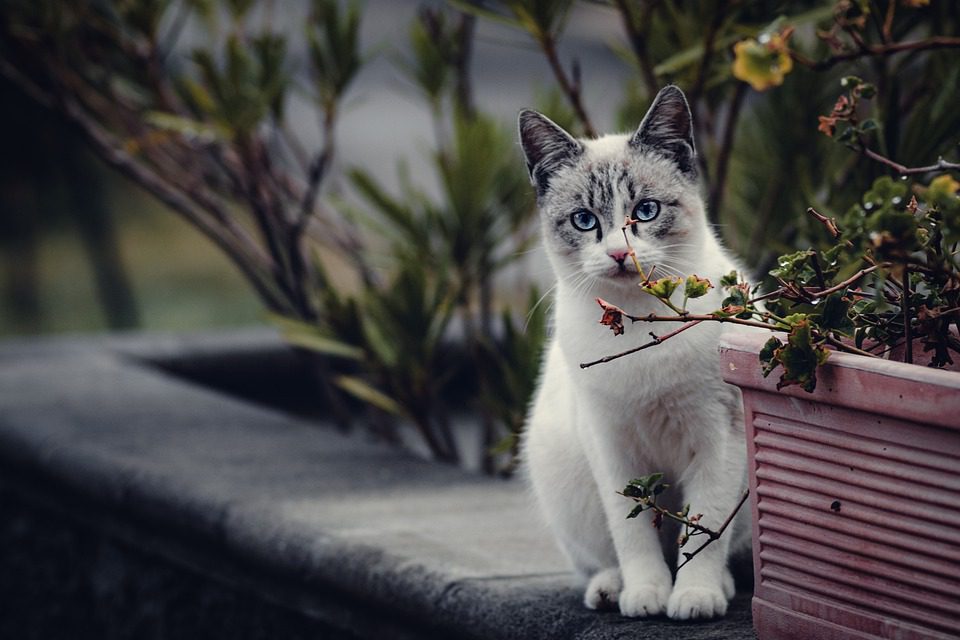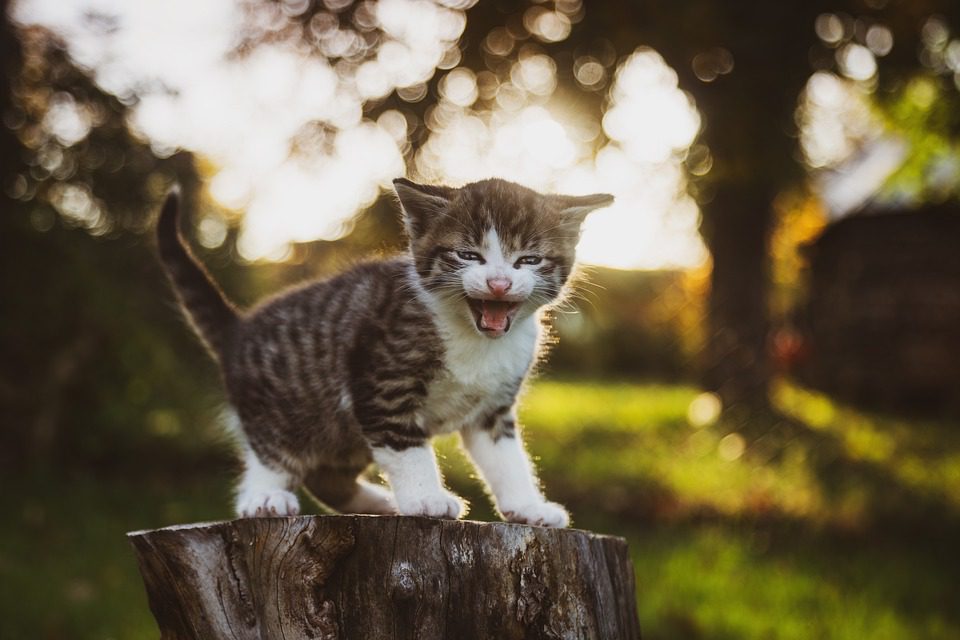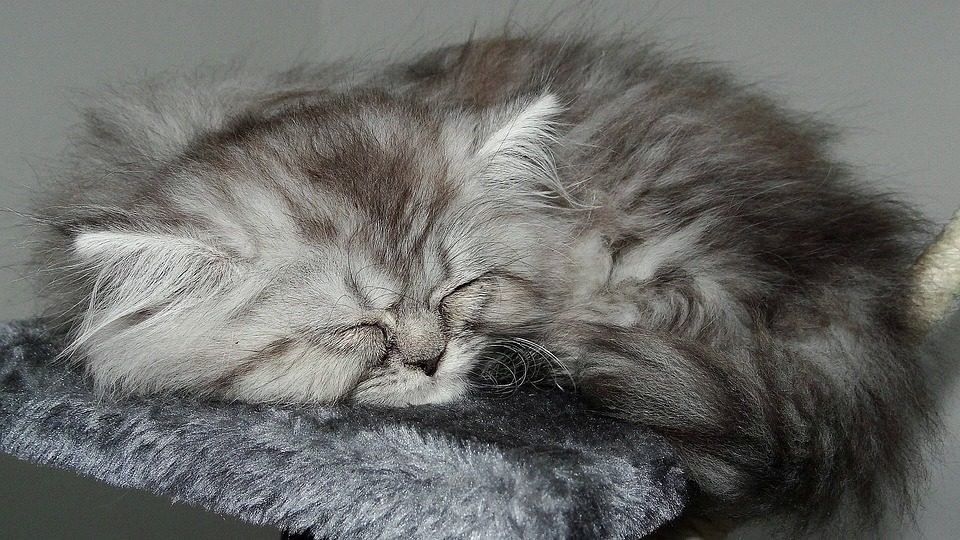If you have a cat that is constantly itching and biting itself, it can be frustrating and worrisome. It can also be confusing if there don’t seem to be any fleas present. Itchy skin can be caused by a variety of underlying issues and it’s important to determine the cause in order to provide your cat with the best possible care. In this article, we’ll help you to understand why your cat may be itchy but have no fleas and what you can do to help them.
Common Causes of Itching in Cats
Table of Contents
It can be distressing to see your beloved pet scratching and biting itself, especially if there doesn’t appear to be any obvious cause. Cats can itch and bite themselves for many different reasons, some of which are more serious than others. If your cat is itchy but has no fleas, it could be due to parasites, allergies, or a skin condition.
Parasites
It’s possible that your cat has a flea infestation even if you can’t see any fleas. Fleas are quite small, and can be difficult to spot without close inspection. If you suspect fleas, use a flea comb to comb through your cat’s fur. If it is fleas that are causing your cat’s itching, then treatment with a topical flea medication should help to relieve the problem.
Allergies
Cats can be allergic to a range of things, such as food, pollen, and dust mites. Allergies can cause cats to itch and bite themselves, and may also cause other problems such as sneezing and coughing. If you think your cat may have an allergy, take them to your veterinarian who will be able to prescribe medication to help alleviate the problem.
Skin Conditions
Skin conditions such as mange, ringworm, and feline acne can cause itching and hair loss in cats. These conditions can be caused by parasites, allergies, or environmental factors. If you think your cat may have a skin condition, take them to the vet for an examination. Your vet will be able to diagnose the condition and recommend the appropriate treatment.
Stress
Cats can become stressed for a variety of reasons, such as an unfamiliar environment or a change in routine. Stress can cause cats to over groom themselves, which can lead to itching and hair loss. If you think your cat is stressed, try to identify the cause of the stress and take steps to reduce it.
Other Causes
Other possible causes of itching in cats include hormonal imbalances, cancer, and kidney disease. If your cat is itchy but you can’t identify the cause, it’s important to take them to the vet for a check-up. Your vet will be able to examine your cat and recommend the appropriate treatment.
It can be worrying to see your cat itching and biting itself, but in most cases, the problem can be easily resolved. If your cat is itchy but has no fleas, it could be due to parasites, allergies, a skin condition, stress, or other medical issues. If the problem persists, take your cat to the vet for a check-up.
Common Myths about Cat Itchiness
Myth: A cat is itchy because it has fleas.
Fact: While fleas can cause itchiness in cats, there are other potential causes of itchiness such as allergies, skin infections, or hormonal imbalances.
Myth: A cat is itchy because it is not groomed often enough.
Fact: While regular grooming is important for cats, it is not necessarily the cause of itchiness. Cats can become itchy even if they are groomed regularly.
Myth: A cat is itchy because it is not eating properly.
Fact: Poor nutrition can cause a variety of health issues, but it is not generally the cause of skin irritation or itchiness in cats.
Myth: A cat is itchy because it is stressed or anxious.
Fact: Stress and anxiety can cause physical symptoms such as hair loss, but it is usually not the cause of itchiness in cats.
Frequently Asked Questions
Why is my cat so itchy but no fleas?
Answer: Itchy skin in cats can be caused by a variety of things, including allergies, skin infections, parasites, or even environmental changes. Fleas are just one of many possible causes, so if your cat doesn’t have any, it’s important to look for other causes. Allergies to food or environmental allergens, such as pollen or dust mites, can cause cats to be itchy. Skin infections, such as ringworm or bacterial infections, can also cause cats to itch. Additionally, parasites, such as mites, ticks, or lice, can cause itching. It is important to have your cat examined by a veterinarian to determine the cause of their itching.
What can I do to help my itchy cat?
Answer: There are several things you can do to help your itchy cat. First, it is important to have your cat examined by a veterinarian to determine the cause of the itching. Depending on the cause, your veterinarian may recommend treatments such as antihistamines, antibiotics, or medicated shampoos. Additionally, you can provide relief to your cat by regularly grooming them to remove any potential allergens or parasites, as well as bathing them with a hypoallergenic shampoo. You can also provide environmental enrichment to your cat to help minimize stress, which can also help reduce itching. Finally, you can provide your cat with a diet that is high in essential fatty acids, which can help reduce skin inflammation.
Conclusion
.
Itching in cats can be caused by a range of things, such as fleas, allergies, parasites, a skin condition, stress, or medical issues. Fleas can be hard to spot, but can be detected with a flea comb. Allergies can cause sneezing and coughing and should be treated with medication. Skin conditions, such as mange and ringworm, should be diagnosed and treated by a vet. Stress can cause cats to over groom and should be managed to reduce the problem. If the itching persists, take your cat to the vet for a check-up.





